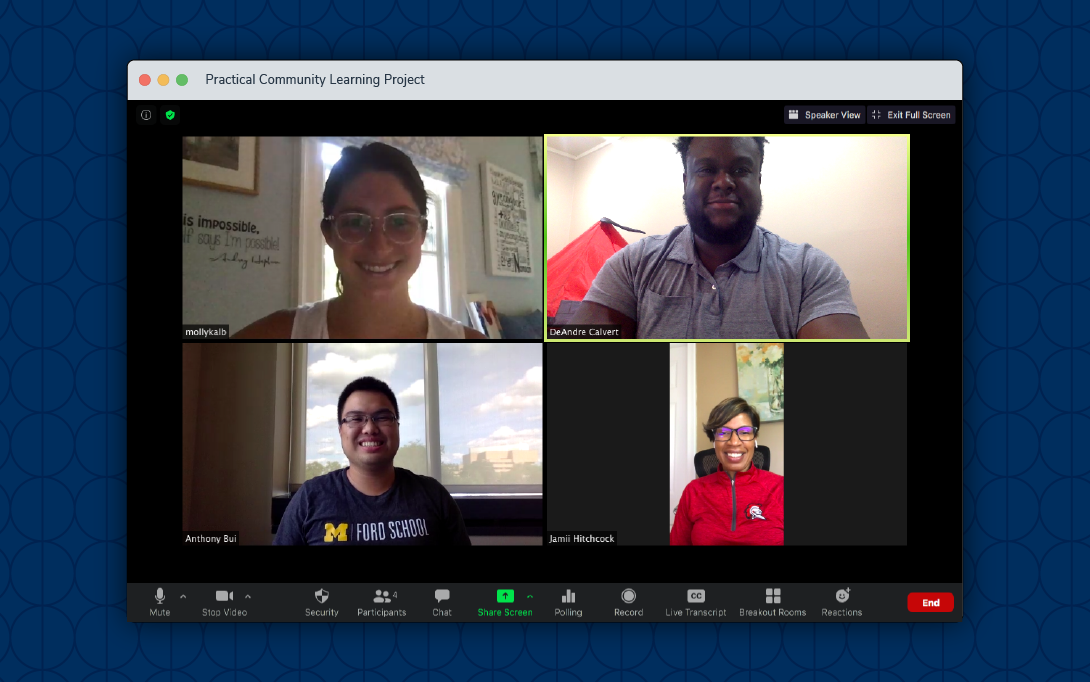
This summer, the Practical Community Learning Project Fellowships provided opportunities for eight Ford School undergraduate students to partner with community partners in and around Detroit. The projects focused on such diverse and important issues as urban agriculture, equity issues in metro Detroit schools, and nursing home responses during the COVID-19 pandemic. Working remotely, the student teams gained unique knowledge and experience, and produced valuable deliverables for our community partners.
One team of students partnered with the Michigan Urban Farming Initiative to create a toolkit to assist with grant applications, brought together knowledge on “agrihoods,” and collected information to improve property maintenance code enforcement. The property maintenance brief introduced some basic ideas and examples of strategic code enforcement and made recommendations for review and/or improvement that include interagency cooperation and consolidation, community engagement, cooperative compliance, data collection and utilization and oversight. The five fellows working on this project found that more and more urban farms and gardens are following the agrihood model to restore disadvantaged neighborhoods into vibrant, healthy communities. Because of their relative novelty, not much literature exists on urban agrihoods. The fellows’ report aimed to fill in some of that gap by providing research on the benefits and challenges of urban agrihoods in terms of community relations, real estate development, food security, and the environment.
Two fellows partnered with the Oakland County School Boards Association. This project both evaluated and challenged the barriers to equity faced by students in the Oakland County School District. Using data primarily from government and research institutions, the fellows analyzed discrepancies in schools based on factors such as race, income, and school budget. This research led to five policy proposals: increase funding for low-income students and English Language Learners; implement project-based community learning; provide faculty and staff DEI training; enact accountability and transparency measures; and remove the Headlee Amendment property tax rollback to restore district funding.
Finally, one fellow worked with the Office of State Representative Kevin Coleman to perform a feasibility study of nursing home responses to the COVID-19 pandemic. The data from 50 states showed that over the course of the COVID-19 pandemic, nursing homes have been particularly vulnerable to the spread and fatalness of the virus. The varying reactions and outcomes of states dealing with COVID-19 spread in their nursing home system displays a need to investigate the bureaucracy, regulation, and safety enforcement in long-term care facilities, in order to better understand and implement effective health policy.
Through these projects, the students learned the hands-on nature of project management even while working remotely. Students were able to independently investigate and analyze data and policy, differing from largely classroom-focused experiences. Students learned valuable community engagement ideals and methods through regular meetings with community partners, stakeholders, and community members. Our partners benefited greatly from the students’ work as well. Not only were the partners able to serve as mentors, but they were able to gain fresh perspectives and new insights from the fellows. Research, engagement, and policy capacity all grew through the mutually beneficial relationship between our summer fellows and community partners.